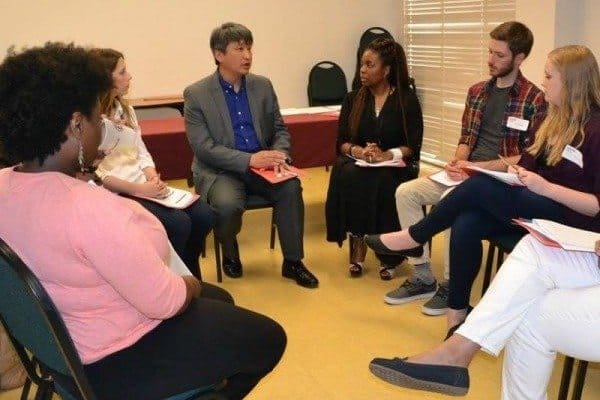
Arkansans interested in helping ensure that research programs at the University of Arkansas for Medical Sciences (UAMS) represent the needs of their communities are invited to participate in UAMS’ first Community Scientist Academy.
Sponsored by the UAMS Translational Research Institute, the Community Scientist Academy will be every Thursday in September, beginning Sept. 1, from 5 – 7:30 p.m., on the UAMS campus in Little Rock, Fay W. Boozman College of Public Health building, room G228. The academy is being offered at no cost to participants. Validated parking is available in Parking 2.
For questions and to RSVP, contact Nicki Spencer at ndspencer@uams.edu, or (501) 526-6629.
Participants in the Community Scientist Academy will interact with UAMS researchers and community members involved in research in small roundtable discussions and other interactive sessions. They will learn:
- How researchers decide what health issues to study
- The research process
- The benefits of individual and community organizations’ involvement in research
- Ways they can volunteer to help with research such as serving on community advisory boards, community review boards for individual studies, as a community grant reviewer and as a research participant
- How a volunteer organization can become involved
“The Academy will create a group of community members who can influence research by serving on steering committees, mentoring committees, review committees, and research projects, and in other leadership roles,” said Kate Stewart, M.D., M.P.H., whose research is conducted in partnership with Arkansas communities.
UAMS researchers conduct clinical studies and community-based studies. Its clinical studies are conducted at UAMS Medical Center and in clinics across the state, including at its main campus in Little Rock, Northwest Campus, eight Regional Centers, Arkansas Children’s Research Institute, and at the Central Arkansas Veterans Healthcare System.
“We hope the Community Scientist Academy can help demystify the research we do at UAMS,” said Stewart, who leads the Translational Research Institute’s Community Engagement program. “It’s critically important that people understand what we do because we can’t improve health without their help.”
